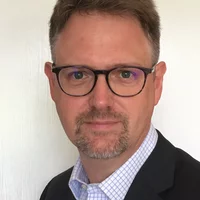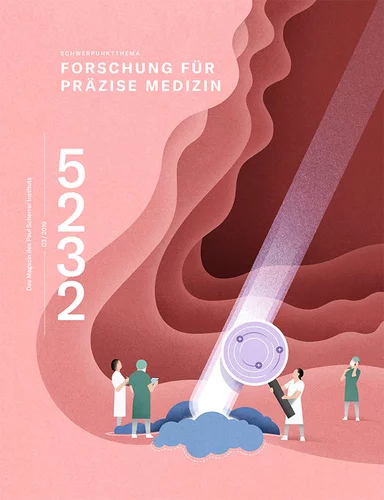Proton therapy is time-consuming and more costly than conventional radiation therapy, but its accuracy in targeting tumours is unsurpassed. PSI's Damien Weber, head of the Centre for Proton Therapy (CPT), is not the only one convinced of this. Across Europe, new centres are being set up to treat more cancer patients. That not only helps the affected children and adults, but also contributes to safety.
Mr. Weber, how did it come about that patients receive treatment at PSI?
The largest and most experienced proton therapy centres worldwide have arisen from research institutes. There are historical reasons for that. You need an enormous infrastructure, and PSI, like other centres too, had it. This made it possible to develop the method in the first place, make it suitable for patients, and continuously improve it. Proton therapy requires a lot of experience, especially for patient safety and for even better results.
PSI has the only proton therapy centre in Switzerland. Is that sufficient to care for all patients?
This is a sensitive but important question in a country that regulates health care at the cantonal level. When you look at the numbers, it is sufficient at the moment because not all patients for whom proton therapy might be indicated receive it. The Federal Office of Public Health FOPH has established a list of cancers for which proton therapy may be used. This list currently includes ten indications for adults as well as all tumours in children and adolescents up to 18 years of age. In Switzerland, with two gantries, we already have more than twice as many irradiation places per inhabitant as, for example, Great Britain. To be good, a proton therapy centre must have a critical mass of patients. If it has only a limited number of patients, it's lacking in experience.
How are the indications for proton therapy set?
That is different in every country. The list in Switzerland was set up 20 years ago, when proton therapy was still in its early stages. Since then, no new diseases have been added to the list. Even though I, as a physician, am convinced about proton therapy: We have to provide data that can prove whether or not proton therapy actually is superior to conventional therapy and causes fewer complications. But the number of patients in Switzerland is small, so you have to collaborate internationally to get enough reliable data on proton therapy for the individual clinical pictures.
How do you want to establish that proof?
The number of proton therapy centres in Europe is increasing. There will be around thirty in 2024. Some of them have joined forces in a network, the European Particle Therapy Network, to concertedly conduct clinical trials with three hundred and more patients. PSI was one of the founders of this network. In addition, PSI is an associate member of the American NRG Oncology Network. It is planned that PSI, in the not too distant future, will participate in one to two randomised Phase 3 studies. One of these will concern lung cancer.
The lungs move when a person is breathing. Is it really possible to irradiate lung cancer as accurately as tumours in other parts of the body?
We have developed a technique that makes this possible. We recently treated a 17-year-old woman with it for the first time. It is very unusual for children or adolescents to get lung cancer, which normally afflicts adults. Now this young woman is cancer-free. That shows how important it is to keep doing research in this field and to continue developing the methods.
Interview: Sabine Goldhahn
Further information
- See also the article: Cancer cells under attack

